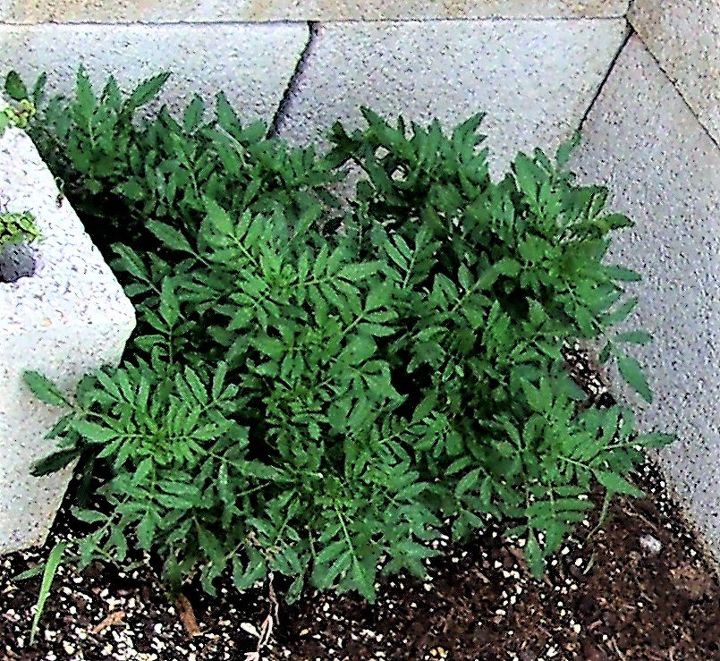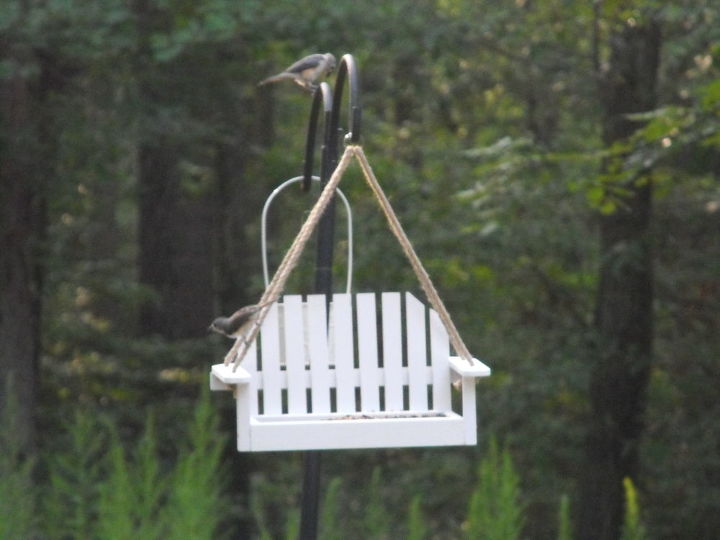How do I keep grasshoppers out of my strawberry plants?

Related Discussions
GNATS - How to get rid of them?
Somehow my house and garden got tiny gnats that killed my fuchsia plant and fly everywhere. I have tried ALL the Web recommendations - soap and oil dishes, sand in th... See more
Marigolds growing! Should I pinch the buds?
My marigold plants are growing. I heard that pinching the buds until Autumn will allow them to grow without killing the plant. Is this true?
Growing garlic
Growing our first garlic, should we wait until the leaves are drying out before we pick it? Husband picked first one today along with our first potatoes.
How to keep mice out of your garden?
Hi everyone, I have mice in my garden destroying my vegetables and I have also noticed them in the barn and shed. Please can someone tell me how to prevent them from ... See more
What's the best flower/plant to grow in Texas?
I know that opinions vary, but what's your opinion?!I have great luck w Rosemary plants. Green all year long.
Does anyone have any good suggestions on how to keep squirrels out of my bird feeders?
I have tried the crushed red pepper in the bird seed, and have tried putting vaseline on the pole that holds the feeders....any other suggestions? I will at times hav... See more




Lots of luck, I have screen over my bed to keep the squirrels out. I put PVC pipes down into the bed all the way to the ground about 8 inches, the I took the PVC pipe and glued elbows on them and attached the screen with plastic wire. And I spaced each pipe out about 3 feet and I can take the whole thing off little by little and pick or one by one .
This is far fetched, but on an episode of Fixer Upper, Jo had a chicken run around her garden so the chickens would eat the bugs before they got to her plants.
Here's an article that might help you - https://www.organiclesson.com/get-rid-of-grasshoppers/
Plants that repel grasshoppers. Some plants that help with this are horehound, cilantro and calendula. Sweet clover and peas effectively repel grasshoppers.
Apply Nosema locustae, a grasshopper-killing parasite, to your plants. This parasite also kills praying mantises, crickets and other bugs closely related to grasshoppers.
Make a garlic oil spray by combining 1 ounce of mineral oil with 3 ounces of chopped garlic. Allow the mixture to soak for 24 hours and then strain. Combine 16 ounces of water, 1 teaspoon of fish emulsion and 1 tablespoon of Castile soap. Combine the fish emulsion and garlic mixtures. To ward off grasshoppers, mix 2 tablespoons of the garlic oil with 1 pint of water and pour into a spay bottle. Spray the garlic oil on the foliage of plants and directly on grasshoppers.
https://homeguides.sfgate.com/keep-grasshoppers-off-leaves-naturally-35891.html
Hot pepper wax insect repellent is the key. It's in all the garden catalogs, and soon it could be on all your plants. Insects can't stand the taste, and therefore do not eat the leaves! Be careful when using this repellent on edible plants, as it could burn your mouth if the plants aren't washed properly.
Pesticidal soap and garlic spray are also viable options for grasshopper control.
Try Ecobran. There's a product called "Ecobran" that only affects grasshoppers and their close relatives. It doesn't affect other insects or birds.
Ecobran uses carbaryl, an organophosphate. It is a good product for small landowners fighting grasshoppers, easy to use, and has minimal impact on beneficial insects compared to other formulations of carbaryl.
https://www.wikihow.com/Get-Rid-of-Grasshoppers
https://survivallife.com/natural-ways-repel-grasshoppers/
BotaniGard ES is a highly effective biological insecticide containing Beauveria bassiana, an entomopathogenic fungus that attacks a long-list of troublesome crop pests – even resistant strains! Weekly applications can prevent insect population explosions and provide protection equal to or better than conventional chemical pesticides.
Safer® BioNeem contains azadirachtin, the key insecticidal ingredient found in neem oil. This concentrated spray is approved for organic use and offers multiple modes of action, making it virtually impossible for pest resistance to develop. Best of all, it’s non-toxic to honey bees and many other beneficial insects.